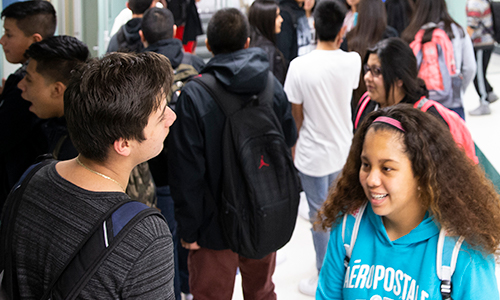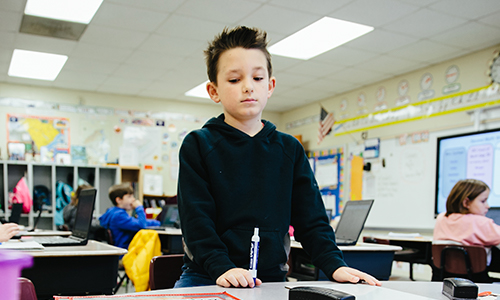Measurement & scaling


The emerging science of test-taking disengagement
Student performance on standardized tests reflects more than just mastery of the material.
By: Steven Wise
Topics: Measurement & scaling, Innovations in reporting & assessment, School & test engagement


An information-based approach to identifying rapid-guessing thresholds
Although several common threshold methods are based on rapid guessing response accuracy or visual inspection of response time distributions, this paper describes a new information-based approach to setting thresholds that does not share the limitations of other methods.
By: Steven Wise


The (non)impact of differential test taker engagement on aggregated scores
Disengaged test taking tends to be most prevalent with low-stakes tests. This has led to questions about the validity of aggregated scores from large-scale international assessments such as PISA and TIMSS, as previous research has found a meaningful correlation between the mean engagement and mean performance of countries.
By: Steven Wise, James Soland, Yuanchao Bo


Validating the SEDA measures of district educational opportunities via a common assessment
SEDA provides a unique measure of educational opportunity across the United States. New research supports SEDA achievement scores, but also reveals some differences in growth estimates.
By: Megan Kuhfeld, Thurston Domina, Paul Hanselman
Topics: Equity, Growth modeling, Measurement & scaling


The impact of proctor notification when students disengage
How do you help make sure students give their best effort on testing day? New research on student test engagement shows how proctor notification can make a significant impact.
By: Steven Wise, Megan Kuhfeld, James Soland
Topics: Measurement & scaling, Innovations in reporting & assessment, School & test engagement


Is social-emotional learning (SEL) a set of discrete skills or a broader competency? New research provides insights.
By: Megan Kuhfeld


In this study, we introduce those disengagement metrics for a policy and evaluation audience, including how disengagement might bias estimates of educational effectiveness. Analytically, we use data from a state administering a computer-based test to examine the effect of test disengagement on estimates of school contributions to student growth, achievement gaps, and summer learning loss.
By: Megan Kuhfeld, James Soland
Topics: Measurement & scaling, School & test engagement, Student growth & accountability policies


